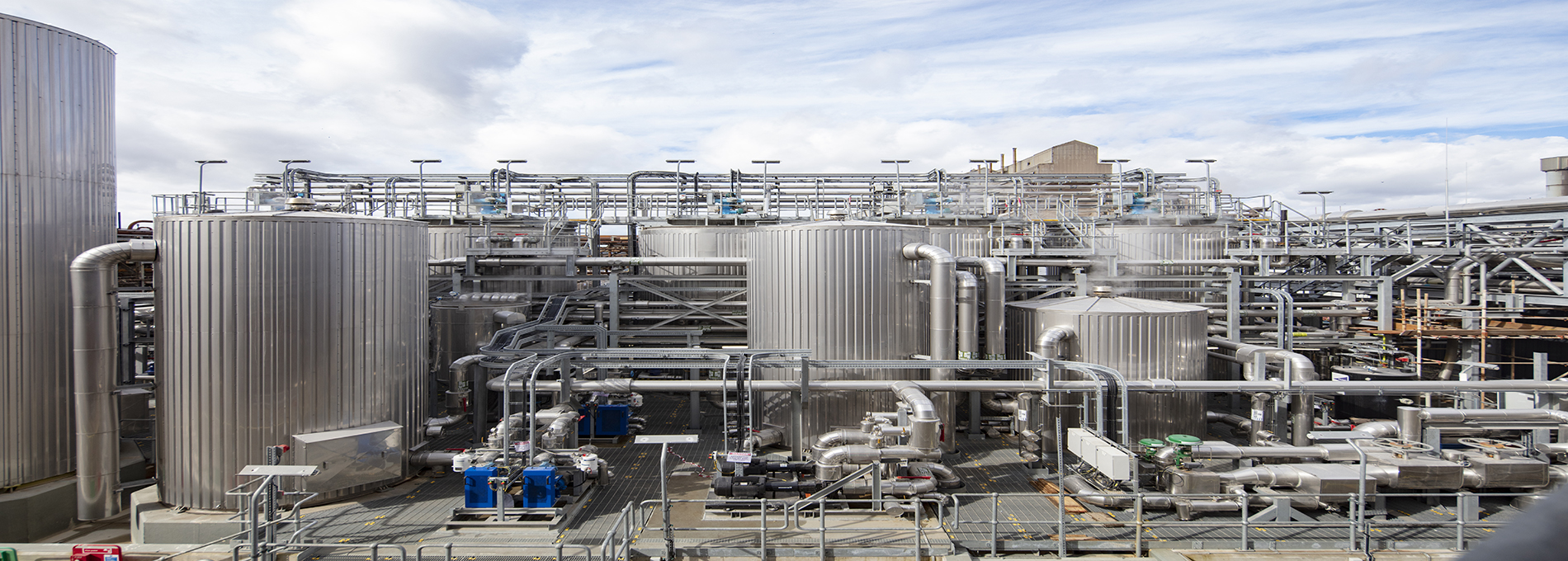National engineering specialist, SES Engineering Services (SES), has announced it has completed its role on a major infrastructure project at TATA Chemicals Europe in readiness for the Lostock Sustainable Energy Plant (LSEP) in Greater Manchester, designed to provide renewable electricity to power 125,000 homes.
Appointed in 2019, by P.J. Carey Ltd, SES has now handed over the new infrastructure to the project partners; TATA, Inovyn & Imerys at the Lostock site.
Once operational, LSEP will recover energy safely and cleanly, diverting 600,000 tonnes of residual waste from landfill. The plant will produce renewable electricity constantly, making it a more reliable source of energy than that gained from wind or solar power.
This is the latest project to benefit from SES’ industry leading offsite capabilities and in- house manufacturing facility, Prism. A notable achievement for the contractor was the manufacture and installation of ‘super-module’ services bridges. Each module was 14m long by 5m wide and a comprehensive logistical master plan was developed working with Greater Manchester Police and Merseyside Police in order to transport these super-modules to site. These modules are the largest SES has manufactured and installed to date, taking nearly 60,000 labour hours off site. The full enabling package also saw the installation of pipework services, HV and LV equipment and transformers as well as reactors.
SES’ involvement on the scheme came as a result of a direct engagement by CNIM & P.J. Carey Ltd who were keen to work with the contractor, following its successful delivery of major projects including its contracts with E.ON Connecting Energies (E.ON) where SES delivered M&E design and installation services on the largest combined heat and power project to be undertaken by E.ON in the UK, and its wider experience of delivering high value, technically complex, industrial projects.
Speaking about concluding such a large-scale and environmentally important project for the Greater Manchester area and the wider ambitions of the UK to achieve Net Zero Carbon by 2050, SES’ managing director, Steve Joyce, proudly spoke about the scheme. He said:
“SES is highly adept when it comes to delivering major enabling works and infrastructure projects of this calibre. Our reputation for delivering large scale projects such as Newcastle City Centre’s district energy centre and a sophisticated aseptic manufacturing facility for global healthcare manufacturer GSK, has enabled us to build our reputation in this field, so much so that we can secure work as the principal contractor, which we are very proud of.
“We knew the project would be a challenge, however, I believe the key to our successful delivery of LSEP’s enabling works, was borne from our early engagement with the supply chain and our ability to identify HV specialists that would support our in-house team with the migration of new building services into existing services.
“The LSEP will contribute to the Government’s strategy to reduce landfill and the export of waste as well as contributing to the country’s effort to reduce the effects of climate change and it’s extremely gratifying to know SES is playing its part and that our efforts will result in the provision of electricity to 125,000 homes in the region.”
The main plant is scheduled to start producing power in 2024.

